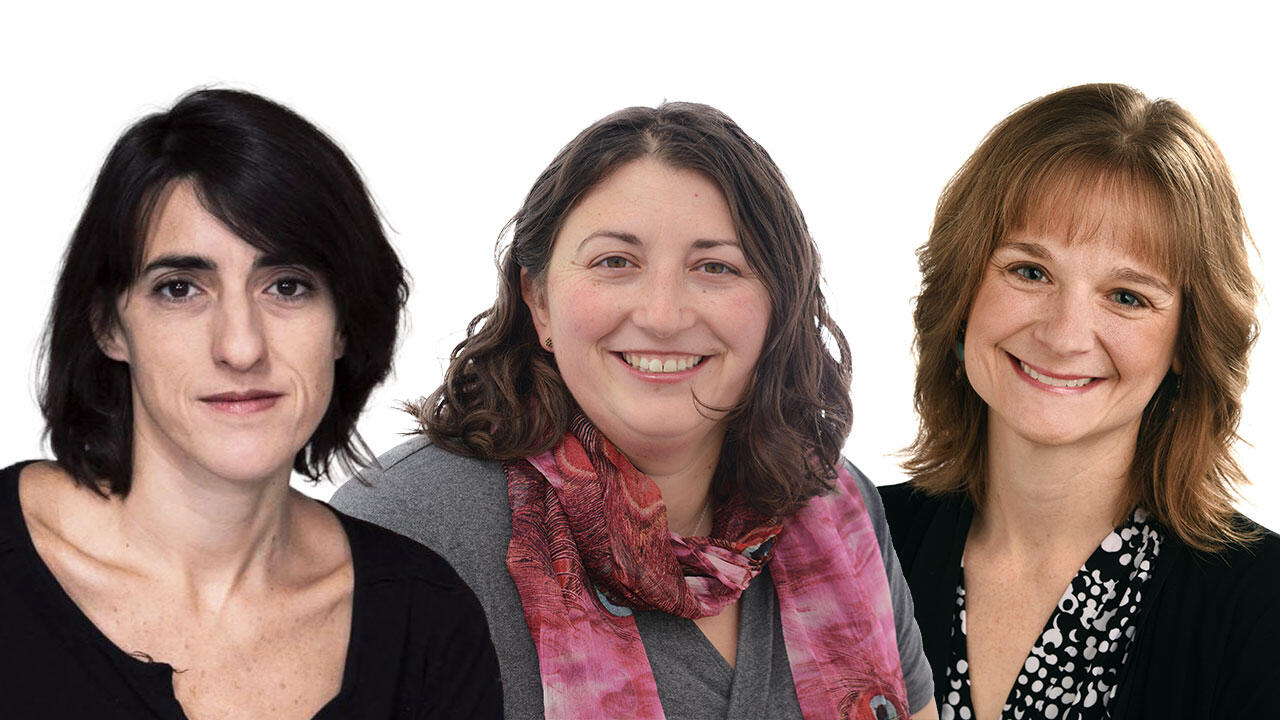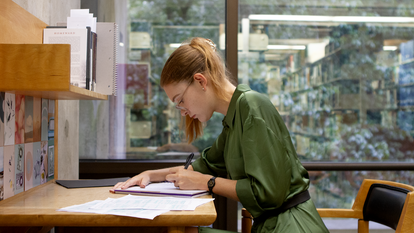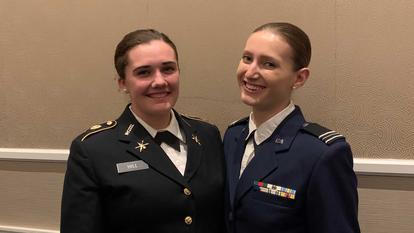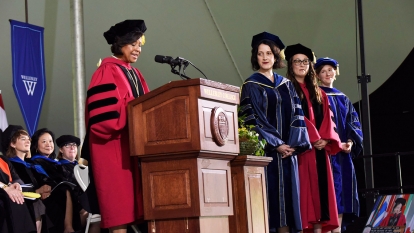
2020 Pinanski Prize Honors Excellence in Teaching
The Anna and Samuel Pinanski Teaching Prize is awarded annually to honor members of the Wellesley College faculty who have demonstrated excellence as teachers. Traditionally announced during commencement exercises, the prize recognizes a particular strength, method, or technique that has been especially successful. Nominations are submitted by the College community and the final selection is made by the president in consultation with the Pinanski Prize Committee.
Watch below as committee members read excerpts from nomination letters for this year’s award recipients, followed by the individual written citations.
Angela Bahns
Associate Professor of Psychology
Students describe their time studying social psychology with Professor Bahns as riveting, challenging, and empowering. She adeptly balances critical readings, class discussions, mock research conference presentations, and short field experiments to help students consider how prejudice and discrimination shape daily life, and how they can use their knowledge to effect change. “She pours her whole self into teaching and into her students,” one student says. “Her seminar not only taught me a new way to look at the world, but also provided a space for me to explore my own place in it,” says another.
In her social psychology courses as well as her advanced seminars, Professor Bahns “does not shy away from challenging topics, and works to cultivate a space where students are able to have productive and respectful discourse about prejudice and discrimination,” says one student. “In each assignment, she challenges her students to consider our own identities and space in the world, sharing her own positionality as well.”
Outside the classroom, Professor Bahns serves as a mentor and model to students. “As a student studying both psychology and education, in the process of becoming a teacher myself, I aspire to cultivate relationships with my students and support them in their learning in the same way that Professor Bahns does,” one student says. “She allowed me and my fellow labmates to be a part of every aspect of the research process,” says another student, who worked in her lab. “We helped develop the manipulation materials, we recruited participants and ran the study, coded data, and then discussed the data analysis she conducted.”
For pushing her students to think critically about data and empirical findings, for guiding them through all stages of the research process, and for cultivating a classroom dynamic that allows them to speak and question without fear of judgment, it is an honor to present Angela Bahns with the Anna and Samuel Pinanski Teaching Prize.
Amy Banzaert
Lecturer in Engineering and Director of Engineering Studies
For Amy Banzaert, nurturing an inclusive, equitable environment in the classroom, the lab, and the field of engineering is paramount. While her courses are challenging and invigorating, students praise her efforts to make engineering fun and accessible to engineers and non-engineers alike, even those who are new to the discipline. She deftly balances lectures with hands-on projects in the WE-Lab, and she knows when to step in to provide guidance and when to hold back to foster independence.
As a result, “the atmosphere in her class is fun and boisterous, the perfect space to facilitate creativity,” says one student. “She made our class one of the most open and inclusive spaces that I have ever learned in,” says another. “Even though I didn’t know anyone in the class going into it, I made a lot of close friends because of the environment she established.”
Amy Banzaert is deeply dedicated to developing her students’ confidence in communication, employing learning tools like talking sticks and portable microphones to help students visualize the dynamics at play in group discussion and participation. “She pointed out in the beginning of these various exercises that using the talking sticks may feel awkward, but they would get us to actively think of our partners who often get left out of discussion and give them the opportunity to speak up,” explained one student. “We discussed with one another whether we tended to take over the conversation or tended to be silent, and we discussed how we would go about changing that. It was fun and it kept us actively thinking about not hogging the mic.”
Team building is a key component of Amy Banzaert’s pedagogy. “There is great strategy behind the way Amy Banzaert assigns groups through the class,” one student says. “Her teaming exercises created a space in which we felt the freedom to speak up and a budding sense of comradery, and with her grouping strategy she made the class a friendly space in which we all knew and trusted one another.”
For her efforts to promote diversity, inclusion, accessibility, and safety in the classroom and lab, her commitment to team building, and her emphasis on creating an environment in which students feel respected and heard, it is an honor to present Amy Banzaert with the Anna and Samuel Pinanski Teaching Prize.
Daniela Rivera
Associate Professor of Art
Professor Rivera makes an effort to help every student who passes through her studio and the art department offices, from prospective students touring the campus to seniors seeking to make late-breaking schedule changes.
"Professor Rivera is why I came to Wellesley,” says one student. “When I was visiting, I stopped by the art department office, and she got up to give me an impromptu tour of the student art spaces. More than the spaces themselves, Professor Rivera’s engagement and excitement made me want to come to Wellesley.”
Professor Rivera is a gifted instructor and lecturer, her students say, and as an artist she is keenly interested in working at the intersection of disciplines and opposing schools of thought. “Professor Rivera embeds her experiences with artmaking and different media into her instruction, modeling the application of our studies to our artmaking,” says one student. “She knows that we are artists who bring unique experiences, techniques, histories, and ideas to class. She does not compartmentalize identities.”
When Wellesley shifted to remote instruction this spring as a result of the pandemic, Professor Rivera met with each of her students individually over Zoom “to hear how we envisioned adapting our artmaking, and to hear how our lives had changed,” says one student. “She acknowledged the bonding trauma of displacement and the possibilities for artmaking that she knew were on the horizon, despite the stress and difficulty of the moment.” Professor Rivera also helped each student connect personally with practicing artists by phone and video chat. She even offered to bring home-cooked meals to students still living on campus who were struggling with the isolation of social distancing.
Always seeking to create and sustain connection, Professor Rivera is a grounding, creative, and supportive force in the lives of her students. “On the last day of in-person classes, Professor Rivera shared how even though we are in an unprecedented crisis, it is also shared by every person in the world,” says a student. “Professor Rivera reminded us that artists can create anywhere, and that art is what will carry us through unknowable changes in life.”
For empowering her students, for fostering their ability to see and make connections, and for encouraging them to remember, as one student puts it, “that there is no separation in life between each thing we create,” it is an honor to present Daniela Rivera with the Anna and Samuel Pinanski Teaching Prize.



